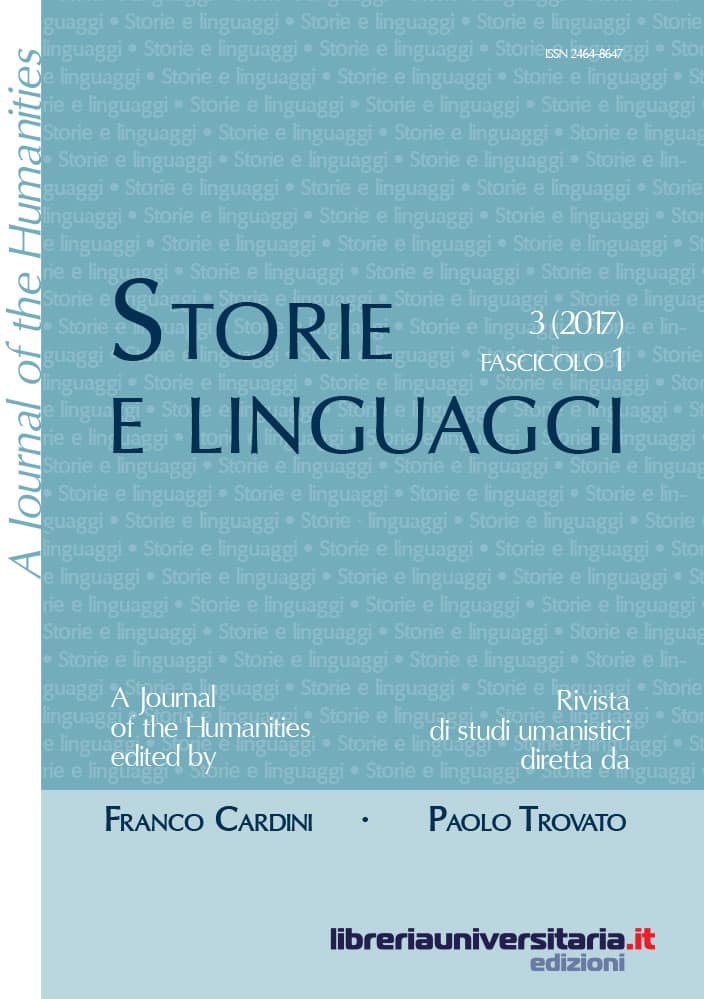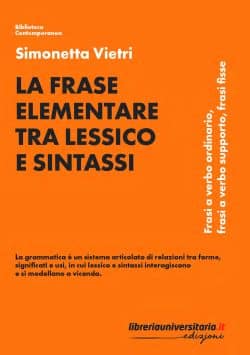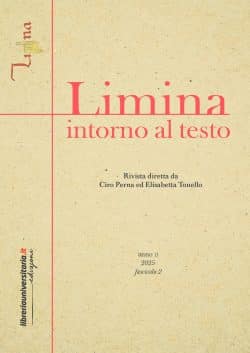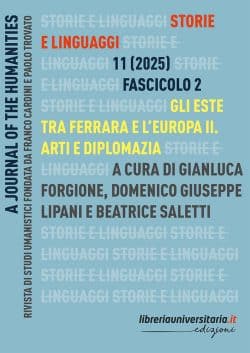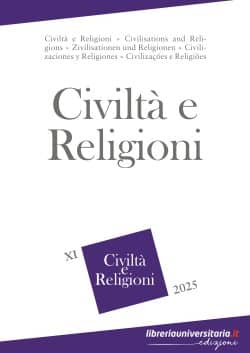Indice
Nastagio’s ghosts. Towards a new reading of the Decameron
The paper analyzes the tale of Nastagio degli Onesti (Decameron, V 8) focusing on the theme of the dead visiting the living, widespread in the medieval literature as well as in folklore. Cardini also offers, in the wake of a proposal by Branca, an overall interpretation of the Decameron’s structure as an ethically consistent upward path from the state of sin to virtue.
Giovanni da Varano donates Macerata to his nephew Rodolfo (1385)
In 1385 Giovanni da Varano, newly elected signore of the city Camerino, commits the gouvernement of the subject city of Macerata to his nephew Rodolfo di Gentile. The original act, edited for the first time, justifies the gift as an occasion for the younger Rodolfo to practice his administrative skills. Proposing the meaning of the unanimous power
of the ruler family Varano, Giovanni writes a diplomatic letter in chancery style, but he uses the local volgare.
Linguistic analysis shows the effort to adapt the spoken language to the diplomatic formulary and to promote even to the “non latinantes” the ideal representation of a just and choral gouvernement.
During the carnival period, the Duke of Ferrara Hercules I of Este (1471-1505) often emanated decrees in which he forbade people in masks to hurt others (similar decrees were issued in many cities, such as Venice). He also forbade masked people from carrying weapons and sticks (but only those that were larger than what the city statutes allowed for). The temptation to settle scores, however, was evidently too strong, because chronicles often report assaults, injuries, and even out and out ambushes.
Excerpere, seligere, abreviare: regarding a new way to transmit the classics
The Humanistic “commonplace books,” meant to facilitate the inventio of historical data and anecdotes, contributed to the creation of an “erudite style” characterized by “catalogues” of quotations. This process is documented by looking at the influence of the Officina by Ravisius on two authors, the Spaniard Pedro Mexía and the Italian Tommaso Garzoni. Much of the classical knowledge present in Renaissance literature depends on these “commonplace books,” which perfected the techniques of abreviatio and cataloguing in order to create vast repositories of data and anecdotes.
Painting, nature, poetry. Fortune (and ekphrasis) of Caravaggesque painters in Roman collections of the 1620s
This essay examines some Caravaggesque paintings in Roman Collections around 1620-1630 and their display, starting to explore some episodes in their relationship with contemporary poetry.
Thirty years later. Three more 17th century female stories
After thirty years since the first pioneering studies about gender history, this essay focuses upon three stories of women, based upon unpublished or little known documents, and taking place in 17th century Italy.
A reading of Eugenio Montale’s Corso Dogali
The paper offers a close reading of a poem of Eugenio Montale, Corso Dogali, which was published in the collection Diario del ’71 e del ’72.

